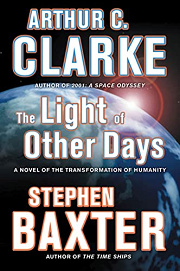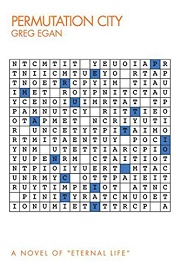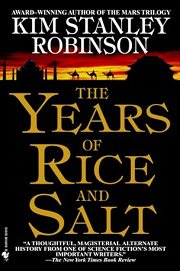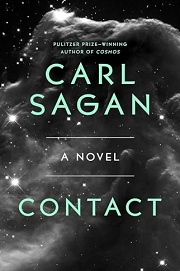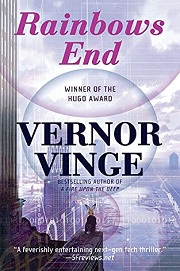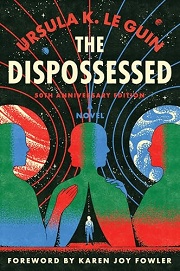Share your thoughts in a quick Shelf Talk!
The Light of Other Days by Arthur C. Clarke and Stephen Baxter
A revolutionary technology lets anyone peek into any moment—past or present—rewriting privacy, history, and the meaning of truth. Visionary and provocative, The Light of Other Days explores how a single invention can remake society, love, and memory itself.
Have you read this book? Share what you liked (or didn’t), and we’ll use your answers to recommend your next favorite read!
Love The Light of Other Days but not sure what to read next?
These picks are popular with readers who enjoyed this book. Complete a quick Shelf Talk to get recommendations made just for you! Warning: possible spoilers for The Light of Other Days below.
In The Light of Other Days, did you enjoy ...
... the rigorous exploration of advanced technology and its philosophical implications?
Permutation City by Greg Egan
If you were captivated by the way The Light of Other Days used the WormCam to challenge the boundaries of privacy, identity, and the nature of reality, you'll be fascinated by Permutation City. Egan crafts a world where digital consciousness and the science of self are pushed to their limits, much like Clarke and Baxter’s speculative technologies. The intricate detail with which Egan describes the technical and existential ramifications of simulated life will deeply appeal to your appreciation for hard science fiction.
... the grand, sweeping narrative spanning centuries and civilizations?
The Years of Rice and Salt by Kim Stanley Robinson
If the epic timeline and historical breadth of The Light of Other Days—tracing humanity’s transformation as the WormCam reveals the entire past—drew you in, you’ll love The Years of Rice and Salt. Robinson’s novel is a vast tapestry of alternate history, following reincarnated souls across centuries as they shape and witness the world. Like Clarke and Baxter, Robinson masterfully blends intimate lives with the sweeping scope of civilization’s evolution.
... the deep dive into philosophical questions about humanity, technology, and our place in the universe?
Contact by Carl Sagan
If you found yourself pondering the profound implications of the WormCam—what it means for truth, privacy, and the fate of humanity—in The Light of Other Days, then Contact will resonate deeply with you. Sagan’s novel follows Ellie Arroway as she grapples not just with first contact, but with questions about faith, science, and the very nature of existence. Both books use advanced technology as a springboard for exploring humanity’s biggest questions.
... the intricate portrayal of future societies transformed by emerging technology?
Rainbows End by Vernor Vinge
If you appreciated how The Light of Other Days built a richly detailed world where new inventions reshape culture and personal relationships, you’ll enjoy Rainbows End. Vinge’s vision of a near-future society—where augmented reality and ubiquitous computing redefine daily life—echoes Clarke and Baxter’s attention to the social and psychological fallout of technological change. The worldbuilding is immersive and thought-provoking.
... the use of multiple viewpoints to explore different facets of society and human nature?
The Dispossessed by Ursula K. Le Guin
If you enjoyed how The Light of Other Days followed various characters—scientists, journalists, and ordinary people—each offering a unique perspective on the WormCam’s impact, you’ll find The Dispossessed equally rewarding. Le Guin’s narrative alternates between two contrasting worlds, using multiple viewpoints to explore themes of freedom, society, and the individual’s role in shaping the future.
Unlock your personalized book recommendations! Just take a quick Shelf Talk for The Light of Other Days by Arthur C. Clarke and Stephen Baxter. It’s only a few questions and takes less than a minute.
